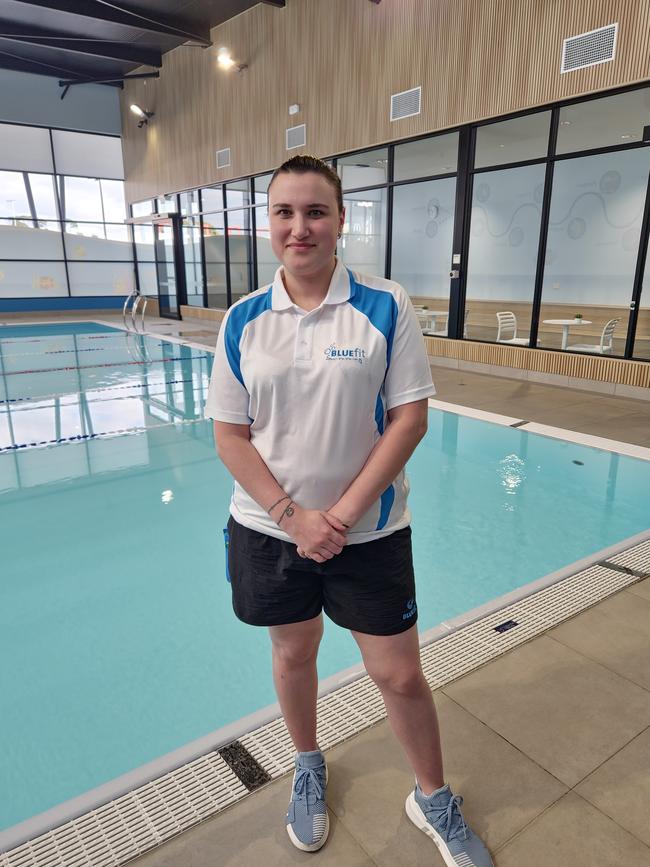Short courses leading to pay rises, promotions for many Aussie workers
Australians are earning pay rises and promotions off the back of completing tasks that can take just a few hours. Find out what you need to do to increase your salary.
Careers
Don't miss out on the headlines from Careers. Followed categories will be added to My News.
Aussie workers can significantly increase their earning ability in as little as three hours, experts say.
Short courses provide workers with the skills needed to win a promotion or pay rise, change to a higher-paying career or develop a lucrative side hustle.
Typically, they take anywhere between a few hours to eight weeks to complete, with many even being offered for free.
The income benefits that come from doing a short course are often instant, says Kade Brown, workforce solutions director at RMIT Online – welcome news for those struggling against rising living costs.
“We do find most of our learners get a pay rise or a promotion or a new role in (their) existing or adjacent sectors relatively rapidly,” Brown says.
“Often, that’s … the real motivator (for people to undertake a short course).”

The skills that will increase your pay
For a significant boost in pay, Brown recommends undertaking short courses that focus on data and digital skills.
Amid a critical digital skills deficit, bosses are willing to pay an eight per cent premium to workers with an understanding of artificial intelligence, software development and data security, he says.
“On the average salary, that’s $5400 more,” Brown says.
“That’s a significant return on investment if you are willing to upskill.”
RMIT Online recently launched a suite of new digital short courses, priced between $1600 and $2500, in in-demand areas such as generative AI and data architecture.
TAFE NSW education and skills executive director Adam Bennett says the benefits of a short course in digital skills stretch to workers from all sectors, not just those in IT.
He suggests cyber security skills, in particular, are highly sought by employers, and many cyber security short courses are available for free.
Licence to earn
Blue-collar workers looking to increase their salaries should consider short courses that are attached to specialist licence qualifications, Bennett says.
He says a forklift licence will earn logistics and warehouse workers more pay – yet few in the industry hold one.
Similarly, those in mining and construction would do well to undertake courses linked to obtaining a white card, a work safely at heights certification or a rigging licence.
Project management skills are also worthwhile to a broad range of workers, Bennett says. TAFE NSW has a free online introduction to project management in construction program that takes just one hour to complete.
Often, the simple willingness to learn, demonstrated through enrolment in a short course, is enough to put workers ahead when it comes to promotions and pay rises. This is regardless of the course undertaken, Bennett says.
“There’s a clear correlation between holding a qualification (or recognition of skill) and your employment security and earning potential – that’s not in dispute,” he says.
“Learning, as opposed to not learning, is always going to put you in front.”

Supplementing incomes
Just holding a first aid qualification can, in some organisations, see workers paid a small allowance on top of their regular income to act as a workplace first aid officer, Bennett says.
For those needing a second job, he says responsible service of alcohol (RSA) or responsible conduct of gambling (RCG) short courses can lead to ongoing hospitality work, with flexible shifts that fit around other employment.
Becoming a qualified lifeguard or swim teacher can also supplement an existing full-time income, says Candice Le Marchant – people and culture manager at learn-to-swim provider BlueFit, which offers free lifeguard and swim instructor training.
Potential swim instructors must complete an online education component followed by a one-day practical assessment and undertake 20 hours of supervised work experience to attain their swim teacher certificate.
A two-day practical training course is required to become a lifeguard.
For both professions, no more than a basic skill level of swimming is required, Le Marchant says.
She says work is available early mornings, evenings and on weekends, providing flexibility to those with existing full-time work.
“If people only want a half day (of work) on a Saturday or a Sunday, they can do that and earn themselves a couple of hundred dollars on top of their regular income,” she says.
“This is a really rewarding career and something that a lot of people that do have other jobs can do as a second job.”

Teaching to stay afloat
Struggling to meet the car repayments, and with her husband off work due to an accident, former stay-at-home mum Rachel Doucas needed a quick fix to her household’s income woes.
Fortuitously, she saw a “Work Available” sign posted at her local pool and discovered free swim instructor training was being offered by BlueFit.
After completing a two-day course and spending the following week shadowing a qualified instructor, Doucas was put in charge of her first swim class at BlueFit’s newly opened Botanic Ridge facility in Melbourne.
Four months later, she is permanently rostered to work one day a week and regularly picks up other shifts, often working five days a week.
Doucas is part-way through a double degree in psychology and criminology and plans to continue to teach swimming on weekends after graduating and finding full-time work in her field of study.
“Honestly, this (job) has been a godsend,” Doucas says.
“Just doing a few shifts (a week) means I can cover my car payments, which was one of the biggest struggles we were having.
“And I love it. It’s so much fun. It’s one of the best jobs there is because you can work the hours you need to.”


